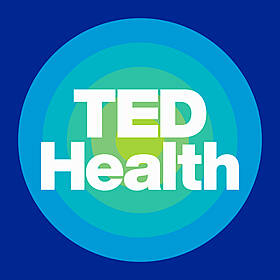
Why do we have crooked teeth when our ancestors didn't? | G. Richard Scott
29 August 2023 - 6 minsAccording to the fossil record, ancient humans usually had straight teeth, complete with wisdom teeth. In fact, the dental dilemmas that fuel the demand for braces and wisdom teeth extractions today appear to be recent developments. So, what happened? While it's nearly impossible to know for sure, scientists have a hypothesis. G. Richard Scott shares the prevailing theory on crooked teeth. This TED-Ed lesson was directed by Igor Coric, Artrake Studio, narrated by Addison Anderson, music by Salil Bhayani, cAMP Studio.

Why venting doesn’t help you deal with anger | Jennifer Parlamis
Does venting actually help you cool off, or does it just add fuel to the fire? Social psychologist Jennifer Parlamis busts common myths about anger, showing how curiosity — not catharsis — can keep you calm. Discover the surprising science behind anger management and four practical tools for building stronger relationships from a researcher who’s rethinking Freud, one deep breath at a time. Hosted on Acast. See acast.com/privacy for more information.
22 mins
6 January Finished

How to use your muscles — or risk losing them w/ Bonnie Tsui | from How to Be a Better Human
Did you know that you start losing bone AND muscle mass as soon as the age of thirty? Or that your fingers and toes don’t have muscles? Or how women in Scotland are starting to compete in the lighting of Dinnie Stones – which weighs 733 pounds?! These are topics that Chris discussed with Bonnie Tsui, author of the book On Muscle: The Stuff That Moves Us and Why It Matters. They also discuss what strength and weightlifting means in today’s society – especially as more women enter the sport. Bonnie and Chris also discuss studying martial arts, playing on sports teams, and the benefits of functional mobility as you age. Hosted on Acast. See acast.com/privacy for more information.
44 mins
30 December 2025 Finished

The surprising science of adolescent brains | from TED Talks Daily
Neuroscientist Jennifer Pfeifer digs into the fascinating brain changes driving young people’s behavior during the critical years of adolescence. She debunks some of the biggest misunderstandings about teens — including puberty, hormones and the impact of social media on mental health — and shows how to support kids during this period of growth and possibility. Hosted on Acast. See acast.com/privacy for more information.
16 mins
23 December 2025 Finished

Interview: 4 ways to design a disability-friendly future with BJ Miller
Nearly fifteen percent of the world's population lives with a disability, yet this massive chunk of humanity is still routinely excluded from opportunities. Sharing her experience growing up with an autistic sister, disability inclusion advocate Meghan Hussey illuminates the path towards an inclusive future in four steps, and it starts with an attitude check on assumptions and stereotypes. Designing a world built for everyone is not a "nice to have," Hussey says -- it's critical to the fabric of society. After, tune in an episode from Shoshana's podcast, Before We Go, featuring BJ Miller on how he sees the world differently. Join @beforewegopodcast on Instagram for more stories, behind-the-scenes moments, and reflections on living and dying. Hosted on Acast. See acast.com/privacy for more information.
48 mins
16 December 2025 Finished

Feeling stuck on climate change? Here’s what to do | Kris De Meyer
To spark action on climate change, the conventional wisdom says that awareness must precede action — but neuroscientist Kris De Meyer suggests the opposite is true: actions drive beliefs. He digs into the science behind decision-making and shows how you can rewire your brain to get unstuck on big challenges. Hosted on Acast. See acast.com/privacy for more information.
15 mins
9 December 2025 Finished

Interview: Grief is complicated — but drawing cartoons can help with Dr. Nathan Gray
With just a few lines, cartoons can say so much with so little. In a moving talk, cartoonist Navied Mahdavian shares his process for distilling huge concepts into drawings on the page — and shows how his work helped him grieve the death of his beloved grandmother, flaws and all. After the talk, Shoshana interviews Nathan Gray on the use of comics and art to educate and explore the ironies of the medical world. Hosted on Acast. See acast.com/privacy for more information.
31 mins
2 December 2025 Finished





















